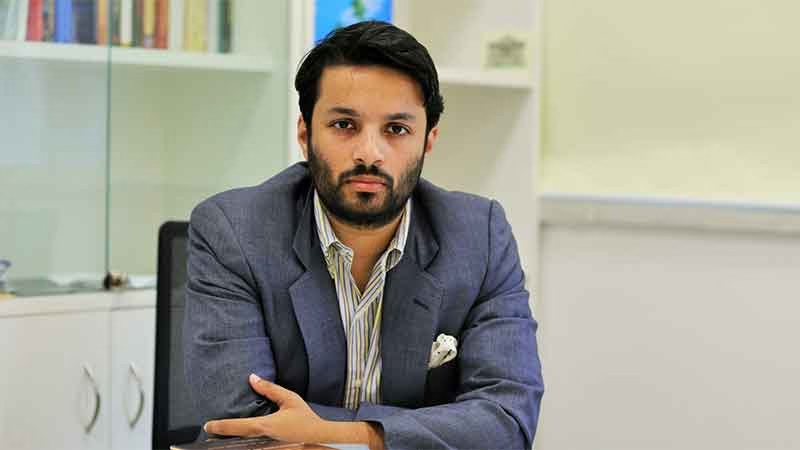
We still hear the echoes of the Netflix series Adolescence in the media. It has indeed sparked widespread discussions and debates about the dangers of smartphones and social media for children and teenagers. The show’s gripping portrayal of technology’s dark impact has created a wave of awareness and even panic among parents and educators. Adding weight to the concerns raised by the series, Sapien Labs released a report in January 2025 titled The Youth Mind: Rising Aggression And Anger. Based on data collected in 2023 and 2024, the report presents alarming findings about the mental health of today’s youth. Sapien Labs, founded by Dr. Tara Thiagarajan — a Stanford-trained neuroscientist — conducted extensive research involving 100,000 individuals aged 18-35 and 10,000 teenagers aged 13-17 in the US and India.
Early Smartphone Exposure and Its Lasting Impact
According to Dr. Thiagarajan, the younger a child is when given a smartphone, the higher the likelihood of facing mental health challenges later in life. As per this reports, giving smartphones to children at a young age (8 or 9 years) can results in a 75% chance of mental health issues in adulthood. Early exposure leads to issues like:
- Aggression and anger
- Detachment from reality
- Hallucinations
- Suicidal thoughts
Living in a Virtual World: A Dangerous Disconnect
The study highlights that many adolescents no longer live fully in the real world. Instead, they exist largely in an online environment, leading to a dangerous disconnection. This virtual immersion begins in adolescence and worsens with earlier smartphone access. Thanks to the toxicity of the online space, the problem has become bad to worse. Exposure to negativity on social media plays a major role. Constant bombardment by negative content creates a worldview filled with fear, hostility, and cynicism.
Moreover, cyberbullying, which is often more damaging than school bullying, severely affects mental health and increases suicidal tendencies. As per Dr. Thiagarajan the adolescents aren’t angry at any one thing. Rather, they view the entire world as threatening, creating a hostile mind-set where aggression becomes a natural defence. Instead of learning empathy or conflict resolution, many youngsters develop a reactionary, aggressive behaviour pattern.
Screen Time Replaces Human Connection
Today’s children spend 5 to 8 hours daily on smartphones — half their waking hours. This significantly reduces face-to-face interaction, impacting:
- Communication skills
- Social behavior
- Emotional development
Before the internet era, a child would have had 20,000 to 25,000 hours of human interaction by the age of 18. Today, it’s less than 5,000 hours. This has only lost the touch with reality. Without real-world interactions, young people struggle with basic social skills like building relationships, resolving conflicts, and collaborating in group settings. Online behaviors like “blocking” don’t translate to real life, leading to poor coping mechanisms.
Constant scrolling disrupts sleep cycles. Sleep deprivation, in turn, exacerbates anger, irritability, and emotional instability — all of which are detrimental to mental well-being. Research shows that children at young age 9 and 10 are being exposed to serious pornography online, which is giving a bad impact to their mental health. This exposure has severe consequences for their psychological and emotional development.
This is making the entire upcoming generation at great risk. Unlike past generations that viewed adulthood with optimism, today’s young adults are entering the world with cynicism and anger. The widespread use of smartphones is seen as a major catalyst for this troubling shift.
The Workforce Crisis on the Horizon
Young adults entering the workforce today struggle with:
- Public speaking
- Teamwork
- Problem-solving
- Building professional relationships
If this trend continues, it could lead to significant challenges across industries as an entire generation with poor social skills — but high aggression — takes leadership roles. Thus there is an urgent need for regulation. Countries like Australia have already taken steps by banning smartphones for children below the age of 16. Dr. Thiagarajan believes such regulations are crucial. Children can be given basic phones for communication without access to the internet. Collective societal action is necessary to address the massive scale of this problem.
Parents Must Lead the Change
Parents are not mere bystanders; they are part of the problem and must be part of the solution. Parental phone addiction models the wrong behaviour for children. True change starts with:
- Being more present and emotionally available
- Practicing what you preach
- Shifting focus from material success to emotional well-being
- Supporting collective efforts to regulate smartphone usage
Subscribe to Our Newsletter
Get the latest CounterCurrents updates delivered straight to your inbox.
Conclusion: A Wake-Up Call for Society
The findings from Sapien Labs, coupled with the cultural wake-up call delivered by Adolescence, paint a grim picture of our future if urgent action is not taken. The mental health crisis among adolescents is not just an individual family’s issue — it’s a societal emergency.
Parents, educators, policymakers, and tech companies must work together to create healthier digital environments for children. Delaying smartphone access, regulating online content, encouraging real-world interactions, and rebuilding strong emotional bonds within families are critical steps forward.
If ignored, the consequences could be catastrophic, affecting not just individual lives but the very fabric of society. The time to act is now — before a generation raised in anger and detachment shapes the world of tomorrow.
(Mohd Ziyauallah Khan is based in Nagpur and a freelance writer and editor. He is also an activist and social entrepreneur and loves to experiment with special and exclusive programs among young people under the banner – Young Transformers.)
















































